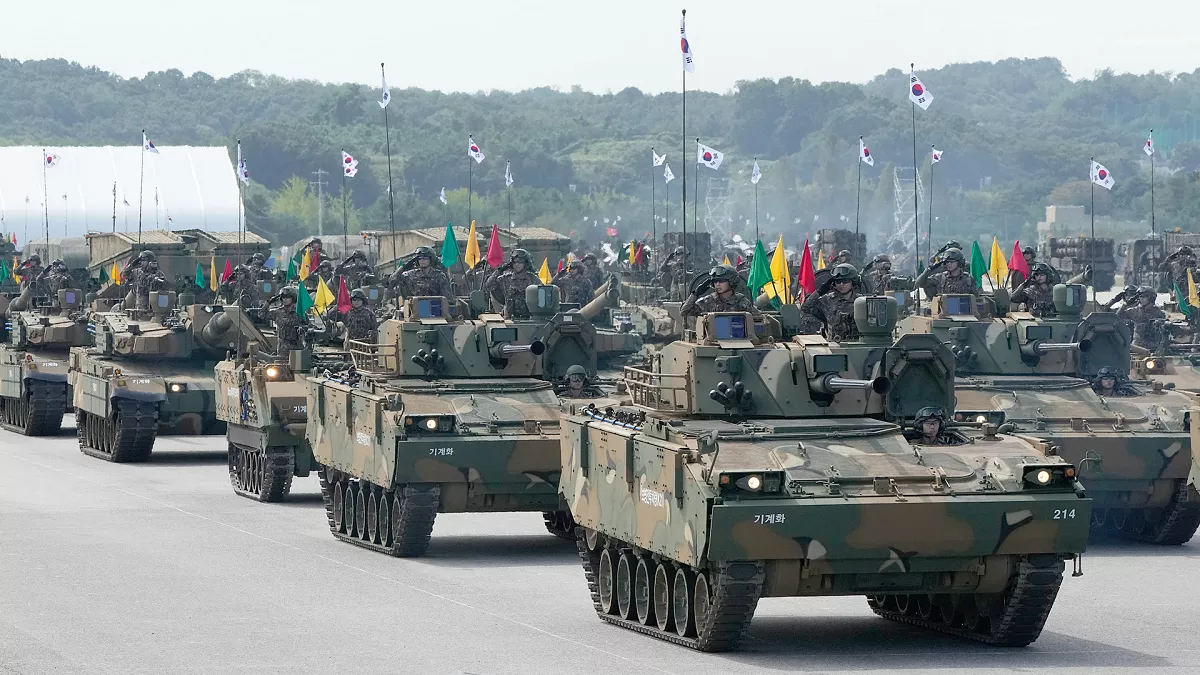Upon hearing reports of thousands of North Korean soldiers being sent to Russia for potential deployment in Ukraine, 25-year-old Yang Seung-ji began searching online for nearby emergency shelters. Yang fears that North Korea’s involvement in Ukraine could heighten tensions between North and South Korea, potentially leading to armed conflict.
“I worry that if public transportation is disrupted, I won’t be able to return home,” said Yang, who recently relocated from Chungju to Seoul, approximately 50 km from the inter-Korean border. “We’ve thought about packing our belongings and stocking up on food.”
Yang’s concerns are shared by others, especially following recent reports of North Korean balloons carrying waste landing in parts of Seoul, sparking a sense that tensions are escalating.
The U.S. Department of Defense recently announced that up to 10,000 North Korean soldiers are being trained in Russia to reinforce Moscow’s forces in the nearly three-year war in Ukraine, a claim backed by South Korean and Ukrainian intelligence. This alliance has raised concerns in South Korea that North Korea might gain nuclear technology from Russia in return.
On Thursday, North Korea test-launched the Hwasong-19, a new solid-fuel intercontinental ballistic missile, setting a record with 86 minutes of flight time.
South Korean President Yoon Suk Yeol pledged to respond to North Korea’s actions in Ukraine, possibly even by supplying weapons to Kyiv. “If North Korea sends special forces to Ukraine as part of its cooperation with Russia, we will support Ukraine in stages and assess further security measures on the Korean Peninsula,” Yoon stated last week during a press conference with Polish President Andrzej Duda.
Providing weapons to Ukraine would represent a significant shift for South Korea, whose role in the conflict has thus far been limited to humanitarian aid and arms support for NATO allies. Any direct military assistance would also require changes to South Korea’s Foreign Trade Act, which restricts sending lethal weapons to active conflict zones except for peaceful uses.
Since the Korean War (1950-53), South Korea has relied on diplomacy to support its export-driven economy and has traditionally limited military involvement to small, non-combat deployments, like those in Iraq and Afghanistan. South Korea deployed around 320,000 soldiers to Vietnam between 1964 and 1973, mainly to secure U.S. aid for its struggling economy.
“South Korea has maintained stability for decades without direct warfare, so a shift toward involvement in Ukraine contradicts our usual approach,” said Son Key-young, an international relations professor at Korea University. “Young people, especially, are opposed to involvement in the war, particularly given the slow economy.”
While some, like 27-year-old advertising professional Han Jun-seo, support helping Ukraine, they hope it can be done discreetly. “What worries me is that North Korean troops will gain real field experience, while our last combat was in Vietnam,” he said.
Others, like 54-year-old office worker Park J. R., believe that any action in Ukraine should be coordinated with the international community. “Russia won’t be our enemy forever, so we need to avoid damaging relations,” Park told Al Jazeera, adding uncertainty over North Korea’s true motives.
Older South Koreans, who remember regular military confrontations between the Koreas, feel it’s essential not to show weakness. “We should make decisions confidently without being overly concerned about North Korea,” said Kim Shin-gyu, a 65-year-old janitor.
At Seoul’s Tapgol Park, 68-year-old Oh R. M. argued that South Korea should develop its own nuclear capability. “If we could defend ourselves from external threats, we could send weapons or troops,” he said.










